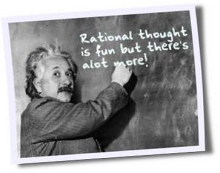 Fifty years ago one of the most popular magazines was named “Life.” The title alone suggested a society that looked broad and wide. Life as we knew it then was crowded, full, expansive, exhilarating.
Fifty years ago one of the most popular magazines was named “Life.” The title alone suggested a society that looked broad and wide. Life as we knew it then was crowded, full, expansive, exhilarating.
A companion magazine to Life was “Time.” Time. Now there’s a title. Einstein himself could not have asked for a title more expansive or endless than that. Time puts us within the arc of history. It provides a context to what was, is, and will be.
 Then in the 80s and 90s came a new publication. A publication interestingly enough that was born out of “Time” magazine. The magazine was “People.” Apparently the publishers of “Time” found out that the most popular page in “Time” was the “People” page. So they turned the “People” page into its own magazine.
Then in the 80s and 90s came a new publication. A publication interestingly enough that was born out of “Time” magazine. The magazine was “People.” Apparently the publishers of “Time” found out that the most popular page in “Time” was the “People” page. So they turned the “People” page into its own magazine.
People. No longer was it all about the globe, the society, the trends, the ideas, the community. No, It was the individuals, the celebrities, the rich and famous. And if you weren’t a legitimate celebrity you could become one through a accidents (like falling down a well) that made you a celebrity for a day (or, in this case, an issue). Your world got smaller. It was a world not of history, movements, and ideology … it was a world of paparazzi, gawkers, show boats, egos, and pretty people that were “larger than life.” People. Larger than Life indeed.
 I guess it was inevitable then that we ended up with this … one of the more popular magazines today … “Self.” That’s right. Self. The publishers shamefully dropped the “ish” but they might just as well have kept it in the title. It probably would have improved sales.
I guess it was inevitable then that we ended up with this … one of the more popular magazines today … “Self.” That’s right. Self. The publishers shamefully dropped the “ish” but they might just as well have kept it in the title. It probably would have improved sales.
So we went from Life to People to … me! Just me. With an exclamation point.
From looking out and looking around to looking inward; from looking at our world to looking in the mirror. It is no longer about life. It is all about me. From gazing at the globe to gazing at our navel.
Then came new media.
![]() First we had the world wide web. Now there is an expansive label. It is world wide. I’m talking global, ubiquitous, all-inclusive all encompassing. It casts a wide shadow. It kindles up religious ideas of an omnipresent force.
First we had the world wide web. Now there is an expansive label. It is world wide. I’m talking global, ubiquitous, all-inclusive all encompassing. It casts a wide shadow. It kindles up religious ideas of an omnipresent force.
But the world was too much to handle. So we came up with personal web logs or blogs. Blogs like this one. And blogs like this one are all about a platform for me to share, rant, converse, have fun. Anybody and everybody can play. But I’m carving out my own little community and conversation. Indeed, I don’t want the world’s approbation. Just my own little band of Juice Bar junkies.
 Finally there was Twitter. This is hardly a conversation. It is digital voyeurism. We lose the narrative. There is no story. There is no context save a reference point in time and place. Indeed, there barely is thought. Just reactions, impulses and one-liners. A series of not-so-random images, reactions, and data points.
Finally there was Twitter. This is hardly a conversation. It is digital voyeurism. We lose the narrative. There is no story. There is no context save a reference point in time and place. Indeed, there barely is thought. Just reactions, impulses and one-liners. A series of not-so-random images, reactions, and data points.
Help!
I’m communications and I’m melting. I’m getting narrower, tinier, smaller.
I used to have a conversation.
Then I shouted out into the ether seeing who’d listen.
Now …
Tweet. Tweet.
 Nothing but a huge time suck.
Nothing but a huge time suck. So as I pulled out Tuesday’s USAToday on a flight home from Boston my eyes rested on a feature story on billionaire George Soros and the promotion of his book. Seems that George is hawking something called “reflexivity.” The relevant summary of Soros’ theory of reflexivity from the
So as I pulled out Tuesday’s USAToday on a flight home from Boston my eyes rested on a feature story on billionaire George Soros and the promotion of his book. Seems that George is hawking something called “reflexivity.” The relevant summary of Soros’ theory of reflexivity from the